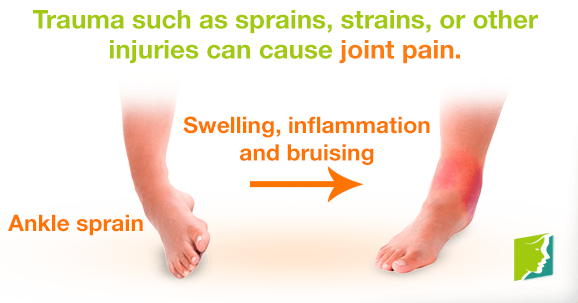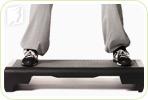Joint pain can affect people of all ages and levels of health, but it's more common during times of hormonal imbalance, such as menopause. The first step in dealing with joint pain is to arm yourself with as much knowledge as possible. Continue reading to learn the answers to five of the most frequently asked questions about joint pain.
What Is Joint Pain?
Joint pain is what it sounds like: pain occurring in your joints. The joint cartilage - a smooth, tough tissue that covers and cushions the ends of your bones - is meant to allow joints to move with minimal friction. The most common joint pain occurs when this cartilage suffers wear and tear over time, exposing bone ends and resulting in painful bone-to-bone contact.
What Causes Joint Pain?
There are several different factors that can cause joint pain. It can be the product of trauma, such as sprains, strains, or other injuries. Arthritis is a common source of joint pain, and any other kind of increased inflammation can cause joints to become painful.
Who Is at Risk?
There are a few known factors that can heighten your risk of developing joint pain, though researchers believe that there are more yet to be discovered. Doctors know that the risk of developing joint pain depends upon your age, weight, diet, genetics, and hormone levels. Older people are more likely to develop joint pain because the prevalence of osteoarthritis increases with age. Being overweight is associated with an increase in knee pain due to the excess pressure placed on those joints.
Though studies show that painful joints can be genetic, nutrition also plays a significant role, as vitamin D deficiency can be related to joint discomfort. Periods of hormonal imbalance may significantly increase incidences of joint pain because estrogen deficiency is known to cause calcium loss, diminish bone density, and increase inflammation.
What Are the Symptoms?
Pain is inevitably the foremost symptom of joint problems. This is often accompanied by stiffness and a cracking sound when moving the joints.
What Can You Do About Joint Pain?
Fortunately, there are ways to ease joint pain. Medical treatment will depend upon the severity of the pain, any medication you are on, and whether you suffer from other conditions. Home remedies such as hot and cold compresses are an easy, accessible way to reduce and relieve your symptoms, but extreme or persistent pain should always be discussed with a physician.
Joint pain is a common condition that most people experience at some stage in their lives. By learning what causes joint pain and what puts you at risk, you can be better prepared address it when it happens.
Explore the links below for further information on how to handle joint pain as well as other menopause symptoms.
Sources
- National Health Service UK. (2014). Osteoarthritis. Retrieved January 7, 2016, from http://www.nhs.uk/Conditions/Osteoarthritis/Pages/Symptoms.aspx
- National Institutes of Health. (2014). Joint pain: MedlinePlus Medical Encyclopedia. Retrieved January 7, 2016, from http://www.nlm.nih.gov/medlineplus/ency/article/003261.htm



